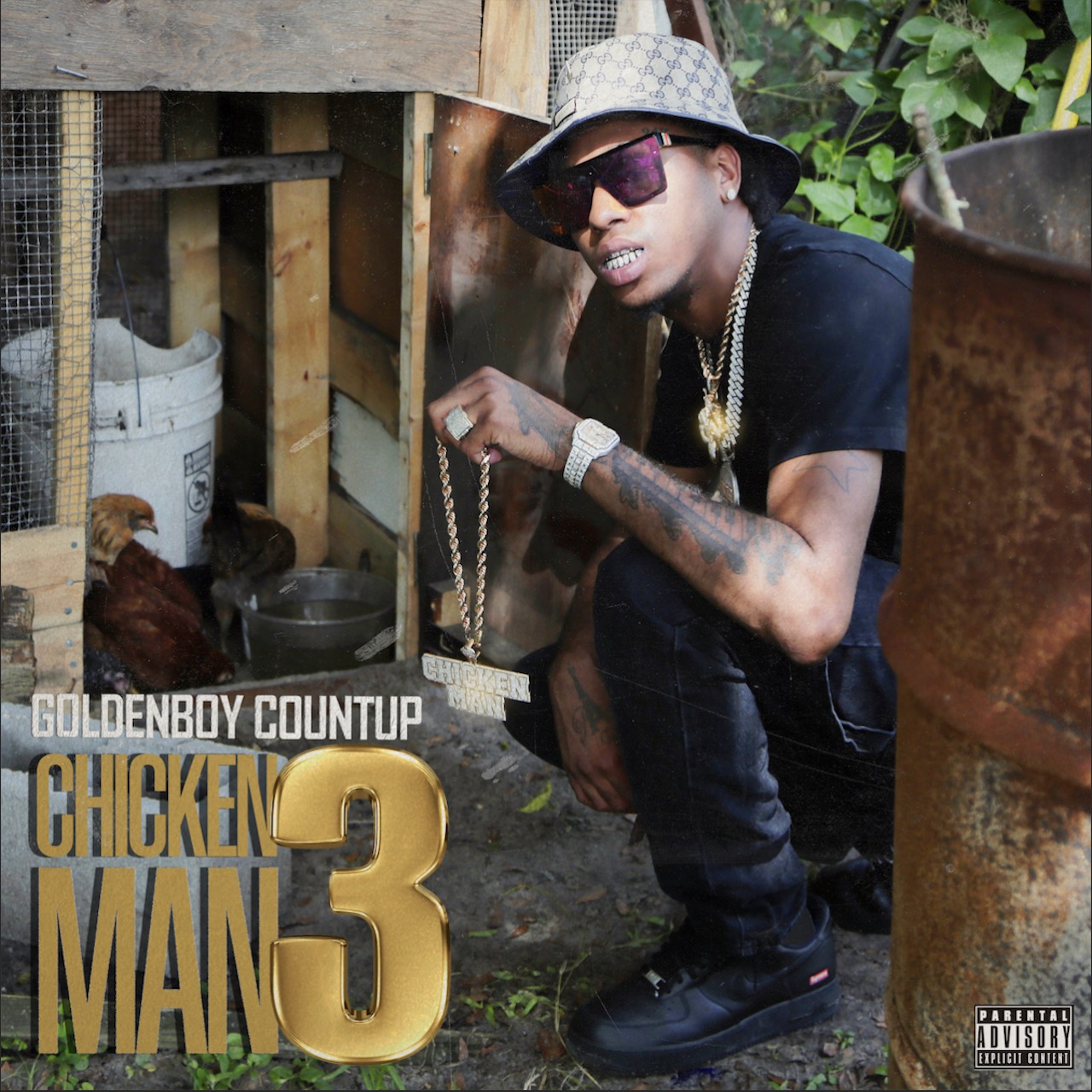Hey there, fellow sports enthusiasts! If you're into football or soccer, you've probably heard the term "golden boy" being thrown around. But what exactly does it mean, and why is everyone so obsessed with tracking their age? Let's dive into the world of golden boys and uncover why their journey is such a big deal. Golden boy count up age isn’t just a buzzword; it’s a fascinating way to follow the growth of young talents who are destined to become legends. So, buckle up because this ride is packed with excitement!
Now, before we get too carried away, let's break down why this topic matters. In the fast-paced world of sports, spotting talent early can make all the difference. Fans, scouts, and even casual observers are always on the lookout for the next big thing. And that's where our focus on golden boy count up age comes in. It's not just about the years; it's about the potential these young athletes bring to the table.
What makes this journey even more thrilling is the personal connection fans develop with these players. Watching them grow from teenagers to world-class athletes is like witnessing history in the making. So, whether you're a die-hard fan or someone who's just curious about the hype, this guide will give you everything you need to know about golden boy count up age. Let's get started!
- Best Remote Iot Vpc Ssh Raspberry Pi Free Setup Guide
- Kaylee Hartung Eye Injury A Comprehensive Look At Causes Treatments And Recovery
Table of Contents
- What is a Golden Boy?
- History of the Award
- Criteria for Golden Boy
- Famous Golden Boys
- Tracking the Age of Golden Boys
- Why Age Matters in Football
- Young Talent Development
- Stats and Figures
- The Future of Golden Boys
- Conclusion
What is a Golden Boy?
Alright, let's start with the basics. A golden boy isn't just some random title handed out to any footballer. It's a prestigious award given to the best young player in European football, specifically those under the age of 21. The term itself has become synonymous with promise and potential. These players are seen as the future stars of the game, and their journey from young hopefuls to seasoned pros is nothing short of inspiring.
Origins of the Term
The concept of a "golden boy" dates back to the early 2000s when the Italian sports newspaper Tuttosport decided to create an award to recognize young talents. Since then, it's evolved into one of the most sought-after honors for young players. The golden boy count up age aspect plays a crucial role here because it emphasizes the importance of nurturing young talent early on.
- Facecheck Id Your Ultimate Guide To Identity Verification Solutions
- Unveiling The Truth Behind Buscar Kid And His Mom Video Original
So, why does this matter? Well, in an era where football is more competitive than ever, identifying and developing young stars is key to long-term success for clubs and national teams alike.
History of the Award
The Golden Boy Award has been around for over two decades now, and its history is as rich as the players who’ve won it. Established in 2003, the award quickly gained traction among football fans and industry insiders. It’s not just about the trophy; it’s about the legacy that comes with it.
Some of the biggest names in football history have been recipients of this award, including Lionel Messi, Wayne Rooney, and Paul Pogba. Each winner has gone on to leave an indelible mark on the sport, proving that the golden boy count up age isn’t just a gimmick—it’s a predictor of greatness.
Evolution of the Award
Over the years, the criteria for winning the award have evolved, but the core essence remains the same: recognizing young talent. Initially, the focus was solely on performance, but now factors like leadership, sportsmanship, and technical skills are also considered. This holistic approach ensures that the golden boy count up age is not just about the numbers but about the overall impact a player has on the game.
Criteria for Golden Boy
So, what exactly does it take to be crowned a golden boy? The selection process is rigorous and involves input from journalists across Europe. To qualify, players must meet several criteria:
- Be under the age of 21 during the award year.
- Play in a top European league.
- Demonstrate exceptional skill, consistency, and leadership on the field.
These standards ensure that only the most deserving players receive the honor. And let’s not forget, the golden boy count up age is a constant reminder of how young these talents truly are. Imagine the pressure of being labeled the "next big thing" at such a tender age!
Famous Golden Boys
Let’s take a moment to appreciate some of the most famous golden boys in football history. These players have not only won the award but have gone on to become legends of the game. Here’s a quick rundown:
Lionel Messi
Who could forget the wizardry of Lionel Messi? The Argentine maestro won the Golden Boy Award in 2009 at the tender age of 22 (yes, we’re counting up that age!). His performance for Barcelona that year was nothing short of magical, and the rest, as they say, is history.
Wayne Rooney
Another iconic winner is Wayne Rooney, who took home the award in 2004. At just 18, Rooney was already making waves with his incredible goal-scoring ability. His journey from a young prodigy to one of England’s all-time greats is a testament to the power of the golden boy count up age.
Paul Pogba
Fast forward to 2013, and we have Paul Pogba, the dynamic midfielder who won the award for his stellar performances with Juventus. Pogba’s rise to fame was meteoric, and his journey continues to inspire young players around the world.
Tracking the Age of Golden Boys
Now, here’s where things get really interesting. The golden boy count up age isn’t just a fun fact; it’s a crucial aspect of their development. Age plays a significant role in how players are perceived and developed. Young talents are often given more time to mature and adapt to the rigors of professional football.
Tracking their age helps fans and analysts alike gauge their progress over time. It’s not just about how old they are; it’s about how far they’ve come and where they’re headed. This aspect of the golden boy count up age adds an extra layer of excitement to the narrative.
Age as a Predictor of Success
While age isn’t the only factor in determining success, it does provide valuable insights. Young players who excel at a tender age often have a better chance of reaching their full potential. The golden boy count up age serves as a benchmark for measuring their growth and development.
Why Age Matters in Football
In football, age matters more than you might think. Young players bring a unique energy and enthusiasm to the game that can’t be replicated by veterans. They’re often more adaptable, quicker to learn, and more willing to take risks. This is why the golden boy count up age is such a big deal.
Clubs invest heavily in youth academies to nurture this talent, and the results speak for themselves. Many of today’s top players were discovered and developed at a young age, proving that age truly is just a number when it comes to potential.
Young Talent Development
Developing young talent is no easy feat, but it’s a necessary one. Clubs and national teams around the world are investing heavily in youth programs to ensure a steady stream of talent. The golden boy count up age is a key indicator of how well these programs are working.
Factors like coaching, nutrition, and mental preparation all play a role in shaping young players into world-class athletes. The focus isn’t just on physical attributes but on the overall development of the player as a person and a professional.
Stats and Figures
Let’s talk numbers for a moment. Did you know that over 80% of Golden Boy winners have gone on to play in the UEFA Champions League? That’s a pretty impressive statistic! The golden boy count up age is often reflected in their performance on the biggest stage.
Here are some more stats to chew on:
- 60% of winners have won at least one major trophy in their careers.
- 85% have represented their national teams in international competitions.
- Over 90% have played for top-tier clubs in Europe.
These numbers don’t lie. The golden boy count up age is a predictor of success, and the stats back it up.
The Future of Golden Boys
As we look to the future, the golden boy count up age will continue to be a key focus in the world of football. With advancements in technology and sports science, the development of young talent is set to reach new heights. Clubs are investing in cutting-edge training methods, and players are benefiting from improved nutrition and recovery techniques.
The next generation of golden boys promises to be even more exciting than the last. With new stars emerging every year, the future of football is in good hands.
Conclusion
And there you have it, folks! The world of golden boy count up age is a fascinating one, filled with promise and potential. From the early days of the award to the present, the focus has always been on nurturing young talent and celebrating their achievements.
So, the next time you hear someone talking about a "golden boy," remember the journey they’ve taken to get there. Whether it’s tracking their age or analyzing their performance, every aspect of their development adds to the rich tapestry of football.
What are your thoughts on the golden boy count up age? Do you have a favorite winner? Let us know in the comments below, and don’t forget to share this article with your fellow football fans. Until next time, keep the passion alive!
- Unveiling The World Of Mms Video A Comprehensive Guide
- Smart School Boy 9 The Rise Of The Future Generation


